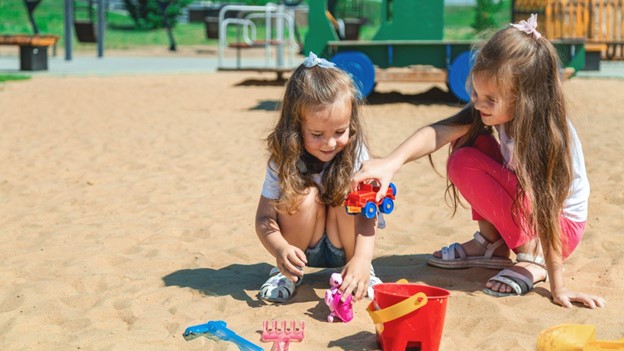

NURTURING EARLY CHILDHOOD FRIENDSHIPS IN PRESCHOOLERS

7/10//24
In the vibrant world of preschoolers, where every day is an adventure, friendships play a pivotal role in shaping children's social skills and emotional intelligence. These early relationships are more than just playtime interactions; they are building blocks for lifelong social patterns and behaviors. As parents, understanding how to encourage and manage these friendships effectively is crucial.
Friendships in early childhood serve as critical platforms for developing key social skills such as sharing, empathy, and conflict resolution. These interactions allow children to explore different aspects of their personalities and learn how to relate to others. The skills gained through these friendships form the foundation of their future social encounters.
As a parent, your presence is essential during your child's initial social interactions. By observing playtimes, you can gain insights into your child's social strengths and areas that may need guidance. For example, if your child is shy, you can facilitate and warm up their interactions by introducing them to new playmates in a supportive manner. If your child is outgoing, you can teach them to be considerate and make space for quieter peers.
It's natural for children to experience strong emotions like anger during interactions with friends. These moments provide excellent opportunities for teaching them to recognize and express their feelings constructively. Explain the physical and emotional sensations associated with anger and demonstrate healthy ways to express these feelings without resorting to verbal or physical aggression.
Role-playing can be an effective method to teach conflict resolution. Create scenarios that mimic common disputes and guide your child through the steps of resolving them peacefully, emphasizing empathy and mutual respect.
Establish simple, clear rules for interactions, such as no hitting, taking turns, and using polite words. These rules help set boundaries and provide a consistent framework within which children can interact safely and respectfully.
Celebrate instances when your child successfully navigates a social challenge. Positive reinforcement encourages them to continue using the skills they've learned and reinforces the behavior you want to see.
Friendships during the preschool years are essential for your child's social and emotional development. By being actively involved, teaching emotional regulation, and providing tools for conflict resolution, you can help your child build strong, healthy relationships that will benefit them throughout their lives. Remember, the goal isn't just to manage their interactions but to empower them to handle their relationships independently and thoughtfully as they grow.
© 2026 Pop-Ins - All Rights Reserved
Site by
